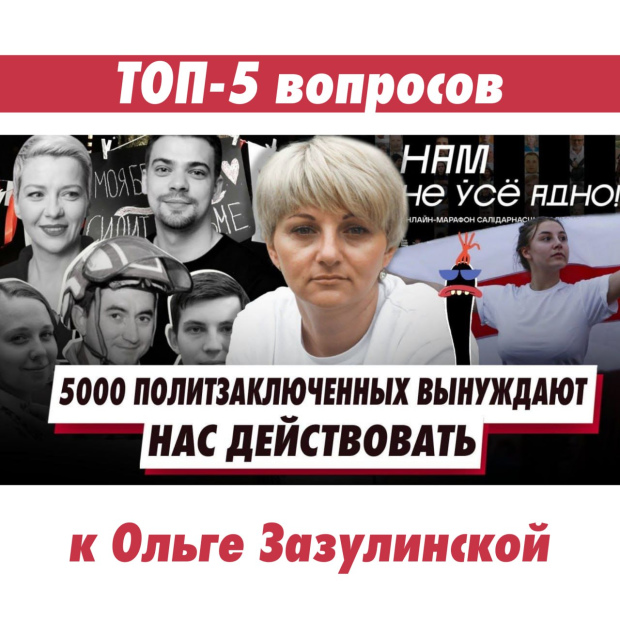Olga Zazulinskaya, the head of "A Country to Live in" foundation, gave a strategic interview to the "Noble Goose" initiative.
- In your opinion, what was the most positive event in the socio-political life of Belarus in 2023?
- Since I lead a charitable foundation that primarily assists the families of political prisoners, the most significant and vivid event for me was the Solidarity Marathon with political prisoners called "We Care!"
- What are the two achievements, either personal or with your team, that you consider the most important in 2023?
- My personal achievement as the head is that I managed to rebuild the team of our foundation. In 2024, we entered with a well-expanded team. Perhaps the achievement of our team is that we continue to work and help the families of political prisoners. We do this for the people who remain inside the country. In my view, that is the most important.
- How long have you been working at the foundation, and how many people are on your team?
- I started working at the foundation at the end of January 2021, already being in exile after leaving Belarus. I initially joined as a project manager for assisting political prisoners. In October 2022, I became the head of the foundation. We have two public figures in our team—those who openly acknowledge their affiliation with our foundation at the moment. The team consists of ten people and about 80 volunteers in exile who support the activities of our organization. As the leader of "A Country to Live in" charity foundation, who do you aim to influence? We have two target groups. Firstly, it's the group we assist— the immediate families of political prisoners, some of whom reside inside the country, while others have left for various reasons. The second target group is our sponsors, Belarusians worldwide. Regardless of where they live, on which continents, or in which countries, these are the people who can afford to help Belarusians inside the country. We understand that people in Belarus are in an information blockade, facing terrible economic conditions and difficulties that a family cannot cope with. Our task is to attract Belarusians who can provide help and connect them with those in need.
- How many Belarusians currently need your help?
- We can talk about over 1600 political prisoners. That's what human rights activists know as of today. Those coming out of prisons say that about a third of inmates in colonies and prisons have yellow tags. These are people not listed as political prisoners, but the guards mark them in a special way. So we can confidently say that it's probably around 3000 people detained on politically motivated charges. There are also about 1400 people who have fully or partially served their sentences and have been released.
- The dictatorship in Belarus relies on certain pillars. The main ones are control over the security forces, control over the country's finances, and support from the Kremlin. Which pillar are you targeting or preparing to target, and how?
- We're trying to make civil society understand that it can do much more on its own, without the involvement of the current authorities in Belarus. So I can't say we're targeting a specific pillar. We're more focused on doing everything possible to preserve the civil sector.
- If you're building the foundation for a new democratic system in Belarus, what pillars are you establishing and how?
- On any issue we discuss, horizontal connections work very clearly. Firstly, it's safer than consolidating everything in a single political centre to make decisions. Secondly, it allows strengthening this civil sector within the country. People must clearly understand their rights and how to use them in the current situation. We want to rid Belarusians of the small person syndrome. Each individual Belarusian is a huge force, even if they do a small thing. But that action is a cog in the overall mechanism, and without that cog, the mechanism won't work.
- What are the two main goals of your activities personally?
- The first goal is more global - to continue working with international partners and actors and attract institutional funds to support people within the country. The second goal is probably not to die from all of this, to maintain my mental health that allows me to keep doing this and remain a resource. So if those accumulating all these resources, connecting these threads, have the resources, we can help more people.
- If you, as a leader, are acting very effectively, circumstances are optimal, and you have all the necessary resources, what achievements will you have in 3 months, 6 months, and a year in implementing the first main goal?
- We have several projects. There's the "Assistance to Families of Political Prisoners" project, "Family Friend" solidarity program which is a continuation of one-time aid to families with children. This is about horizontal connections, where people help directly. There's the "Medical Expenses Compensation Program," launched since January this year. There's the "Consultative Aid Program for Belarusians" who have emigrated to Lithuania for political reasons. So my main task now is to get some institutional funding for these two programs that are already working.
We've also written two more programs that we want to implement with our partners - people's embassies. This includes the "Through Culture to Freedom" program - organizing events, charity auctions, concerts. There, we'll not only showcase Belarusian culture but also raise funds to support people within the country. There's another concept - we tried working on it in 2022, but then the war in Ukraine started, and the program stopped. It's a cultural exchange program for children of activists, strike participants, and political prisoners. In this framework, we send kids on vacation to different countries.
So our task is to ensure that these programs work today with democratic institutions, and in the future, they return to the country with us. I can say for sure that in 3 months, we probably won't be able to get funding for already working programs, so I set the goal of at least managing within 6 months and finding funds for the children's vacation program and the "Through Culture to Freedom" program. We held a Solidarity Marathon with political prisoners "We Care!" and showed a very good result. And now people's embassies have suggested organizing an "Intercontinental Solidarity Marathon." It's challenging to say the format at this point. Preliminarily, we're talking about directing this marathon towards attracting institutional, international support and searching for new local funds, organizations, NGOs that we can involve and engage in specific tasks. At the same time, I can reveal a secret that within this marathon, we plan to move away from using the Russian language. We will speak the language of the country where the broadcast is coming from. It's a very long marathon; I think it will last not for 12 hours but longer. The second language will be Belarusian."
- When will you host the intercontinental marathon?
- It will be carried out this year.
- And when will you launch the relaxation program for the children of activists, strike participants, and political prisoners?
- That will also be implemented in 2024. The program will start anyway. I have a distinctive character trait - I am very stubborn and never give up on a project halfway. Even though in 2023, due to the war in Ukraine, we couldn't do it. The whole world was taking in Ukrainian children, and we must be understanding about that. There is a situation when there is war in a country, and people are forced to evacuate children, leave themselves - a slightly different situation than in Belarus. But in 2024, we intend to secure funding for ongoing projects and implement these two programs. In the first program, we won't be the ones implementing it, but we will be partners for sure - that's the "Intercontinental Marathon." And the children's relaxation program, which we will be implementing with people's embassies.
- What achievements will be realized in the implementation of the second main task - preserving internal resources?
- If you don't see in the public news that the head of "A Country to Live in" foundation is undergoing treatment in a psychiatric clinic - then everything is effective.
- What other achievements will you accomplish as the leader of "A Country to Live in" foundation over three months, six months, and a year?
- In reality, even with what we have, a huge amount of resources is involved - human, financial. I would rather talk about making assistance not diminish. Because the further we move away from the point of 2020, the harder it is to keep Belarus in focus. I think people inside the country feel this. We feel it too. Because we have more opportunities to meet at both closed and open events. And with Europeans and international representatives. So, perhaps, I would like us to manage to preserve what we have.
- Who among the Belarusians can personally help you in your activities?
- If these are Belarusians currently living in Belarus, they will greatly help us by preserving themselves. If we are talking about Belarusians outside of Belarus who feel relatively safe, "A Country to Live in" foundation is always open to volunteers. Volunteers come to us and sometimes perform a specific task. It's one option, one task. When a volunteer takes on a task, it's like they spend a bit of time on it and feel their connection to the overall democratic process. Also, there's this usefulness factor - a person has done something, they are helpful, something happens with their participation. So, to all those in relative safety, we welcome you. You can write to us; we are always open.
- Do you plan to conduct voting for the most important steps? When and on what issues?
- Of course, I would like to have the opportunity to hear more voices, but I understand that today in Belarus going to any open public spaces, asking something from Belarusians is, at the very least, unsafe. Because digital traces remain, and people can be detained later, even preventively, analyze their gadgets and dig up a lot of information. And we - "A Country to Live in" foundation, an extremist formation. It's important to understand that any contact with us, any support to us as an organization, exposes people in Belarus to criminal responsibility. So today, I'm not ready to say whether we will conduct any polls. Let's leave the task of polls to the media. Let them handle it. And we will quietly gather on closed calls with activists and other Belarusians and listen to them. Listening and hearing - that's the most important.
- In the context of the struggle for democratic changes, what question would you like to know the answer to right now?
- I would like to know when one person will die. It's probably not very democratic and humanistic, but it's the only question that interests me - when he and his older brother will die. I don't mention these people by names and surnames, not because I fear for my safety, but because they are empty spaces for me. But this empty space creates so many problems for the whole world and Europe that I sometimes find it strange to observe why the world and Europe still do not react to this more constructively.
- In your opinion, what was the most positive event in the socio-political life of Belarus in 2023?
- Since I lead a charitable foundation that primarily assists the families of political prisoners, the most significant and vivid event for me was the Solidarity Marathon with political prisoners called "We Care!"
- What are the two achievements, either personal or with your team, that you consider the most important in 2023?
- My personal achievement as the head is that I managed to rebuild the team of our foundation. In 2024, we entered with a well-expanded team. Perhaps the achievement of our team is that we continue to work and help the families of political prisoners. We do this for the people who remain inside the country. In my view, that is the most important.
- How long have you been working at the foundation, and how many people are on your team?
- I started working at the foundation at the end of January 2021, already being in exile after leaving Belarus. I initially joined as a project manager for assisting political prisoners. In October 2022, I became the head of the foundation. We have two public figures in our team—those who openly acknowledge their affiliation with our foundation at the moment. The team consists of ten people and about 80 volunteers in exile who support the activities of our organization. As the leader of "A Country to Live in" charity foundation, who do you aim to influence? We have two target groups. Firstly, it's the group we assist— the immediate families of political prisoners, some of whom reside inside the country, while others have left for various reasons. The second target group is our sponsors, Belarusians worldwide. Regardless of where they live, on which continents, or in which countries, these are the people who can afford to help Belarusians inside the country. We understand that people in Belarus are in an information blockade, facing terrible economic conditions and difficulties that a family cannot cope with. Our task is to attract Belarusians who can provide help and connect them with those in need.
- How many Belarusians currently need your help?
- We can talk about over 1600 political prisoners. That's what human rights activists know as of today. Those coming out of prisons say that about a third of inmates in colonies and prisons have yellow tags. These are people not listed as political prisoners, but the guards mark them in a special way. So we can confidently say that it's probably around 3000 people detained on politically motivated charges. There are also about 1400 people who have fully or partially served their sentences and have been released.
- The dictatorship in Belarus relies on certain pillars. The main ones are control over the security forces, control over the country's finances, and support from the Kremlin. Which pillar are you targeting or preparing to target, and how?
- We're trying to make civil society understand that it can do much more on its own, without the involvement of the current authorities in Belarus. So I can't say we're targeting a specific pillar. We're more focused on doing everything possible to preserve the civil sector.
- If you're building the foundation for a new democratic system in Belarus, what pillars are you establishing and how?
- On any issue we discuss, horizontal connections work very clearly. Firstly, it's safer than consolidating everything in a single political centre to make decisions. Secondly, it allows strengthening this civil sector within the country. People must clearly understand their rights and how to use them in the current situation. We want to rid Belarusians of the small person syndrome. Each individual Belarusian is a huge force, even if they do a small thing. But that action is a cog in the overall mechanism, and without that cog, the mechanism won't work.
- What are the two main goals of your activities personally?
- The first goal is more global - to continue working with international partners and actors and attract institutional funds to support people within the country. The second goal is probably not to die from all of this, to maintain my mental health that allows me to keep doing this and remain a resource. So if those accumulating all these resources, connecting these threads, have the resources, we can help more people.
- If you, as a leader, are acting very effectively, circumstances are optimal, and you have all the necessary resources, what achievements will you have in 3 months, 6 months, and a year in implementing the first main goal?
- We have several projects. There's the "Assistance to Families of Political Prisoners" project, "Family Friend" solidarity program which is a continuation of one-time aid to families with children. This is about horizontal connections, where people help directly. There's the "Medical Expenses Compensation Program," launched since January this year. There's the "Consultative Aid Program for Belarusians" who have emigrated to Lithuania for political reasons. So my main task now is to get some institutional funding for these two programs that are already working.
We've also written two more programs that we want to implement with our partners - people's embassies. This includes the "Through Culture to Freedom" program - organizing events, charity auctions, concerts. There, we'll not only showcase Belarusian culture but also raise funds to support people within the country. There's another concept - we tried working on it in 2022, but then the war in Ukraine started, and the program stopped. It's a cultural exchange program for children of activists, strike participants, and political prisoners. In this framework, we send kids on vacation to different countries.
So our task is to ensure that these programs work today with democratic institutions, and in the future, they return to the country with us. I can say for sure that in 3 months, we probably won't be able to get funding for already working programs, so I set the goal of at least managing within 6 months and finding funds for the children's vacation program and the "Through Culture to Freedom" program. We held a Solidarity Marathon with political prisoners "We Care!" and showed a very good result. And now people's embassies have suggested organizing an "Intercontinental Solidarity Marathon." It's challenging to say the format at this point. Preliminarily, we're talking about directing this marathon towards attracting institutional, international support and searching for new local funds, organizations, NGOs that we can involve and engage in specific tasks. At the same time, I can reveal a secret that within this marathon, we plan to move away from using the Russian language. We will speak the language of the country where the broadcast is coming from. It's a very long marathon; I think it will last not for 12 hours but longer. The second language will be Belarusian."
- When will you host the intercontinental marathon?
- It will be carried out this year.
- And when will you launch the relaxation program for the children of activists, strike participants, and political prisoners?
- That will also be implemented in 2024. The program will start anyway. I have a distinctive character trait - I am very stubborn and never give up on a project halfway. Even though in 2023, due to the war in Ukraine, we couldn't do it. The whole world was taking in Ukrainian children, and we must be understanding about that. There is a situation when there is war in a country, and people are forced to evacuate children, leave themselves - a slightly different situation than in Belarus. But in 2024, we intend to secure funding for ongoing projects and implement these two programs. In the first program, we won't be the ones implementing it, but we will be partners for sure - that's the "Intercontinental Marathon." And the children's relaxation program, which we will be implementing with people's embassies.
- What achievements will be realized in the implementation of the second main task - preserving internal resources?
- If you don't see in the public news that the head of "A Country to Live in" foundation is undergoing treatment in a psychiatric clinic - then everything is effective.
- What other achievements will you accomplish as the leader of "A Country to Live in" foundation over three months, six months, and a year?
- In reality, even with what we have, a huge amount of resources is involved - human, financial. I would rather talk about making assistance not diminish. Because the further we move away from the point of 2020, the harder it is to keep Belarus in focus. I think people inside the country feel this. We feel it too. Because we have more opportunities to meet at both closed and open events. And with Europeans and international representatives. So, perhaps, I would like us to manage to preserve what we have.
- Who among the Belarusians can personally help you in your activities?
- If these are Belarusians currently living in Belarus, they will greatly help us by preserving themselves. If we are talking about Belarusians outside of Belarus who feel relatively safe, "A Country to Live in" foundation is always open to volunteers. Volunteers come to us and sometimes perform a specific task. It's one option, one task. When a volunteer takes on a task, it's like they spend a bit of time on it and feel their connection to the overall democratic process. Also, there's this usefulness factor - a person has done something, they are helpful, something happens with their participation. So, to all those in relative safety, we welcome you. You can write to us; we are always open.
- Do you plan to conduct voting for the most important steps? When and on what issues?
- Of course, I would like to have the opportunity to hear more voices, but I understand that today in Belarus going to any open public spaces, asking something from Belarusians is, at the very least, unsafe. Because digital traces remain, and people can be detained later, even preventively, analyze their gadgets and dig up a lot of information. And we - "A Country to Live in" foundation, an extremist formation. It's important to understand that any contact with us, any support to us as an organization, exposes people in Belarus to criminal responsibility. So today, I'm not ready to say whether we will conduct any polls. Let's leave the task of polls to the media. Let them handle it. And we will quietly gather on closed calls with activists and other Belarusians and listen to them. Listening and hearing - that's the most important.
- In the context of the struggle for democratic changes, what question would you like to know the answer to right now?
- I would like to know when one person will die. It's probably not very democratic and humanistic, but it's the only question that interests me - when he and his older brother will die. I don't mention these people by names and surnames, not because I fear for my safety, but because they are empty spaces for me. But this empty space creates so many problems for the whole world and Europe that I sometimes find it strange to observe why the world and Europe still do not react to this more constructively.


 Continue
Continue
